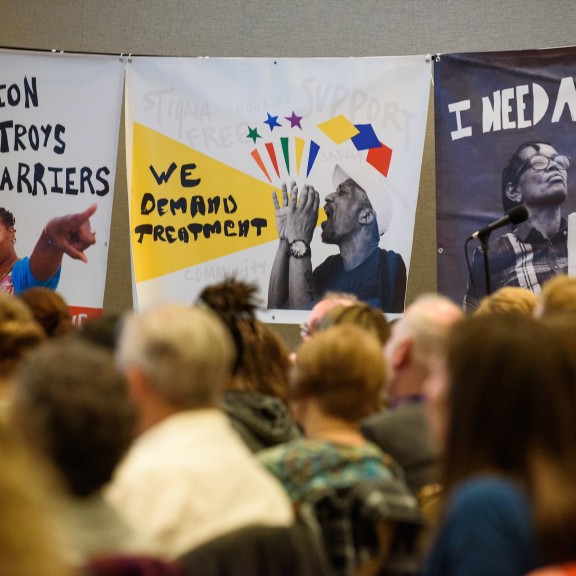Respectful, Helpful and Fair
The Solutions Journalism Network is committed to advancing journalism that is respectful, helpful and fair, and that reflects the agency, aspirations and humanity of all people and communities.
Our approach is grounded in cognitive science, which has demonstrated that people’s beliefs — including the very facts we are willing to acknowledge — are strongly influenced by pre-existing narratives. Those narratives are shaped by stories, images and teachings we have been exposed to over our lifetimes, and they are highly prone to error.
Research demonstrates that the vast majority of people’s everyday decisions are made quickly and unconsciously, based on these pre-existing narratives. (See this interview with the late Nobel Laureate Daniel Kahneman, who explains the relevance of cognitive science for journalism.) In other words, we are continually making assumptions about people and events based not on facts, but on the prior associations in our minds. And we are wired to give more weight to information that confirms our preconceptions and to devalue information that calls them into question.
That is why, without concerted effort, we are all inclined to get stuck in our worldviews and biases, to misjudge people and events, and to reach mistaken, prejudiced conclusions about what happened and why.
Journalists are no exception. And because our biases are amplified through our coverage, we have a responsibility to work to overcome them. We also have considerable power to challenge our audiences’ pre-existing beliefs by surprising people with stories that reveal complexity and cut through disparaging stereotypes.
Such reporting can move us toward curiosity, humility and empathy. It also reflects the world more accurately, which can lead to greater trust and connection, as people from varying backgrounds see themselves reflected with more nuance. This can reveal areas of common ground. Making shared values and aspirations visible across lines of difference is vital to the health of democracy.
At SJN, we use specific practices that help us examine and overcome our biases. And we invest in work, internally and with our partners, to advance news that reveals and aims to correct biases embedded in narratives linked to such things as where people live or were born, their socioeconomic status or educational attainment, the kind of work they do, their religion or political party, how they identify in terms of gender or sexual orientation, what race or ethnic group they belong to, and so on.
Through approaches including Solutions Journalism, Asset-Framing and Complicating the Narratives, among others, we are helping journalists:
- Produce stories highlighting how people, institutions or communities are making progress against challenges in order to surface shareable insights and to counter biased narratives stemming from traditional news coverage that tends to dwell disproportionately on problems and wrongdoing;
- Report more accurately on communities that have been (or continue to be) described in the news predominantly in terms of their deficits or problems, including communities of color, people from rural and economically disadvantaged regions, people with disabilities, and other stereotyped groups — so as to advance narratives that accurately reflect community members’ agency and aspirations;
- Develop interviewing and listening skills adapted from the field of conflict resolution that help journalists embrace complexity, reveal confirmation bias to reduce polarization, and build genuine trust and rapport with sources and audiences; this leads to richer and more nuanced stories about issues where people are divided — stories that often reveal common goals and opportunities to engage with these issues more productively.
